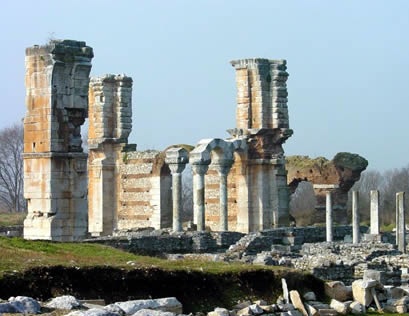
The ecclesiological shift is found in the church renewing its missional identity in practice as well as in theory. Moving from merely a sending church that sends a few professional missionaries to a imaginatively exploring and living as a sent people who live out mission daily. The West is growing more and more Post-Christian which may sound like all bad news. This shift can however contain promise in it for the Church in the Post-Christian West in offering it a purifying challenge. Today there is a huge opportunity for the church to develop a missiology of Western culture and be what by nature she is called to be: A sent people, a missional church.
Tim Keller speaks about the failure of the modern church to appreciate this and its need to make this ecclesiological shift in a holistic way instead of just changing one dimension of its life or enacting merely a new program of evangelism while the rest of the churches life stays the same:
“…the church in the West had not become completely ‘missional’–adapting and reformulating absolutely everything it did in worship, discipleship, community, and service–so as to be engaged with the non-Christian society around it. It had not developed a ‘missiology of western culture’ the way it had done so for other non-believing cultures.” The Missional Church
Later in this same article Keller shares the four
key characteristics of missional churches who’ve made the ecclesiological
shift;
1.
Discourse in the
vernacular: Missional churches avoid tribal language, we-them language, talking
as though non-believers weren’t present in our churches. We must learn to
discourse in the local vernacular’s our churches are situated within
2.
Enter and re-tell
the culture’s stories with the gospel: Missional churches enter
into their culture by showing sympathy toward and deep acquaintance with the
artifacts of the culture (music, art, literature, food, etc.) acknowledging the
goodness of culture because of common grace and the image of God in all
humanity; missional churches are able to re-tell their cultures stories in
light of the biblical story which shows us how in Christ we can have freedom
without slavery, embracing the ‘other’ without injustice.
3.
Theologically
train lay people for public life and vocation: Missional
churches train everyone to ‘think Christianly’ about everything and work with
distinctive’s shaped by the biblical story; people are encouraged to renew and
transform culture through a theology of work; and to become culture-makers;
missional churches encourage people to demonstrate love and ‘tolerance’ in the
public square, under cutting intolerance as a common defeater of the gospel in
the Post-Christian West.
4.
Create Christian
community which is counter-cultural and counter-intuitive: Missional
churches seek to empower and equip the body to show the surrounding culture how
radically different a Christian society is with regard to sex, money, and
power; and missional churches practice holistic mission because the world is a
holistic mess because of sin and God has provided a holistic answer in Christ;
they do this through word and deed, through the proclamation and presence of
the Kingdom of God.
The ecclesiological shift of the missional church is a
holistic shift. A shift made for the sake of reaching, in incarnational way,
those without Christ in the Post-Christian West. As Harvie M. Conn said long
ago,
“The most difficult step for many
missionaries and urban church planters in the United States to take is to
rearrange our lives. Jesus rearranged His life for us, and it is imperative
that we rearrange our lives for the people he died for.”
Discussion Questions:
1.
Is it only bad news that the West is growing more and more
Post-Christian? What benefit could this new setting bring to the church?
2.
Are missional churches the only viable expression of the church in
the global setting of today?
Thank you everyone for commenting and contributing. I have learned
more from all of you than you have no doubt learned from me. Here are a few
resource suggestions to continue considering the Missional Church;
Best short article; The Missional Church, by Tim Keller
Best book; The Missional Church: A vision for the sending
of the Church in North America, edited by Darrell Guder
Helpful video short: What is the Missional Church?, by Tony Stiff

